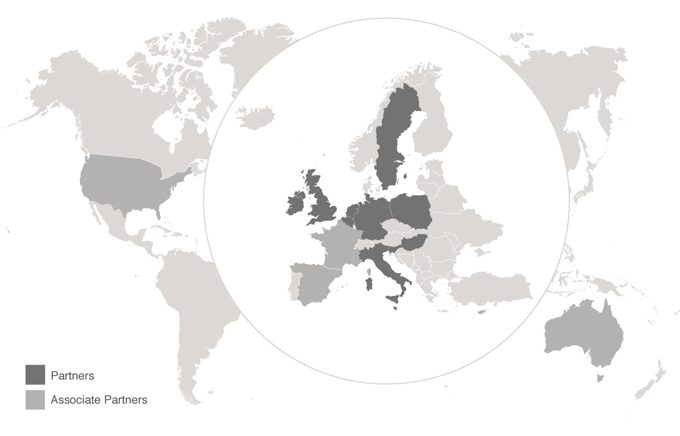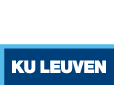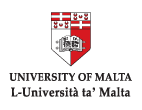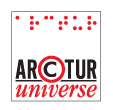This project has received funding from the European Union’s Seventh Framework Programme for research, technological development and demonstration under grant agreement no 632694
Partners

The project has the ambition to concentrate in a rapid and compact action a wide number of partners who are expected to contribute each with complementary tasks and expertise to the common goal of designing and validating the CIVIC EPISTMOLOGIES Roadmap. The participants collectively constitute a very multidisciplinary consortium which is at the basis of the achievement of the project objectives.
Also, the 11 European countries represented in the consortium (the map above illustrates the geographic provenience of the partners), which range from Northern to Southern countries, including a relevant participation of Eastern-European partners, offer a wide perspective for the development of the CIVIC EPISTEMOLOGIES Roadmap, taking different points of view that should be all taken into account when planning the implementation of new e-Infrastructures in Europe.
Complementarity among the participants is well respected and the different expertise is well balanced with respect to the project objectives:
- the Coordinator represents the policy level; the Ministry of Economic Development well fit with one priority focus of the project, that is the development of the capacities of the people (researchers and citizens working together) with the aim to generate new opportunities of economic development and new jobs as the result of development of new skills. In this light, empowering the research on cultural heritage with new e-Infrastructure services that enable the citizens to contribute to research goals does not apply only within the research sphere, but its impact continues within the wider society. This is the reason why the coordination of the Ministry of Economic Development is the right choice for CIVIC EPISTEMOLOGIES;
- four Universities participate, each with a specific knowledge. Four research elements are needed for CIVIC EPISTEMOLOGIES and each University brings in the consortium that expertise: the ability to correlate the business development phase with the research results (WIT), a thorough understanding of the evolution of the digital libraries in the context of the e-Infrastructure development (UoM), use of e-learning in the Humanities and in the digital cultural heritage (the Media Lab of the Institute for Cultural Studies at KU Leuven’s Faculty of Arts), a combination of historical and artistic approaches to the DCHH research (COVUNI);
- three complementary representatives of the e-Infrastructures: a private e-Infrastructure provider (ARCTUR) a public one (PSNC) both associated with the European Grid Initiative Foundation (ECGI.eu). They will bring to the consortium facilities and resources for running the pilots, plus expertise on the business and sustainability models that the European e-Infrastructures are discussing;
- three major cultural institutions, each one representing one sector of the cultural heritage, as different faces of the recipients of the work of the citizens: museums (SPK), archives (RA), libraries (NSL);
- one very experienced SME that will provide the technical coordination and will lead the communication of the project to bring to value all the results of the studies conducted by the partners.
The following figure provides an overview of the Consortium as a whole:

Fifteen international organisations already expressed their interest to participate as Associate Partners in CIVIC EPISTEMOLOGIES so far and we expect to increase the network during the project life-cycle.














